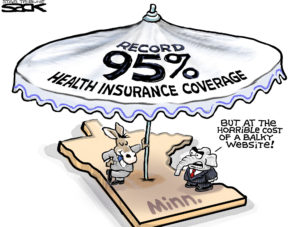January 24, 2024
 Canada, with its picturesque landscapes and warm hospitality, attracts visitors from around the globe. If you’re planning a trip to the Great White North, you might be wondering: Does Canadian healthcare cover visitors? Let’s dive into the details to ensure you’re well-prepared for your visit.
Canada, with its picturesque landscapes and warm hospitality, attracts visitors from around the globe. If you’re planning a trip to the Great White North, you might be wondering: Does Canadian healthcare cover visitors? Let’s dive into the details to ensure you’re well-prepared for your visit.
Understanding Canadian Healthcare System
In the true spirit of hospitality, Canada takes pride in its publicly funded healthcare system, a cornerstone in providing essential medical services to its residents. This system, funded through taxes, ensures that Canadian citizens have access to medical care without the burden of hefty bills. However, the catch for visitors is this: the welcoming embrace of Canada’s healthcare does not automatically extend to those who are just passing through.
As a visitor, you won’t find yourself eligible for the same benefits that Canadian citizens enjoy. This means that if you face any unexpected health issues during your visit, you could potentially be responsible for the medical expenses. It’s at this juncture that the significance of Visitor Insurance comes into play.
Before embarking on your Canadian adventure, it’s wise to explore the options available for Visitor Insurance coverage. This type of insurance acts as a financial protection, offering financial protection in case you need medical attention. Obtaining a Visitor Insurance quote becomes your first step in ensuring that you’re adequately covered for unforeseen circumstances.
In the realm of Canadian healthcare, having Visitor Insurance provides you with the assurance that you can access medical services without the worry of substantial out-of-pocket costs. It’s a thoughtful and proactive approach to safeguarding your well-being while enjoying the wonders of Canada. Remember, understanding the nuances of the Canadian healthcare system and complementing it with Visitor Insurance coverage is your key to a worry-free and enjoyable visit.
The Importance of Visitor Insurance
Starting your journey towards Canada is an exciting adventure, but ensuring your well-being throughout your stay is paramount. This is where Visitor Insurance steps in as your trusted companion, tailored to shield you from unexpected medical expenses.
Visitor Insurance serves as a safety net, offering a protective layer that covers a spectrum of potential health-related scenarios. From unforeseen illnesses to accidents requiring medical attention, this specialized insurance is designed to alleviate the financial burden that can accompany such situations.
Picture this: You’re exploring the stunning landscapes of Canada, perhaps taking a stroll through bustling city streets or hiking along picturesque trails. Suddenly, a minor ailment or injury strikes, and you find yourself in need of medical assistance. Here’s where Visitor Insurance plays a crucial role. It not only provides coverage for hospital stays, emergency treatments, and prescribed medications but also offers a sense of security that allows you to fully immerse yourself in the Canadian experience.
Now, let’s talk about preparation. Before you set foot on Canadian soil, obtaining a Visitor Insurance quote is a proactive step towards ensuring comprehensive coverage. This quote outlines the costs associated with your chosen plan, considering factors like your age, duration of stay, and the specific coverage you require. It’s akin to mapping out a safety plan for your health, offering financial clarity and enabling you to make an informed decision.
Understanding the nuances of visitors’ insurance coverage is equally vital. While most plans cover essential medical services, delving into the specifics ensures you choose a plan aligned with your travel needs. Some plans may include coverage for trip interruptions or cancellations due to medical reasons, adding an additional layer of security to your travel plans.
In essence, Visitor Insurance isn’t just a formality; it’s your shield against unforeseen health challenges. With the right coverage in place, you can explore Canada with confidence, knowing that your health and peace of mind are safeguarded throughout your journey. So, consider this your travel health companion – a reliable ally ensuring your Canadian adventure remains a source of joy and cherished memories.
Find out can you get insurance as a visitor in Canada?
Key Features of Visitor Insurance
Beginning your journey to Canada is an exciting venture, but ensuring your health is covered should be a top priority. Visitor Insurance is your reliable companion, offering a safety net for unforeseen health issues. Let’s delve into the key features that make this insurance a must-have for every visitor:
- Hospital Stays: Visitor Insurance understands that unexpected health concerns can sometimes lead to hospitalization. That’s why it typically covers the expenses related to hospital stays. Whether it’s a minor ailment or a more serious condition, having this coverage ensures you can emphasize on recovery without the added stress of hefty medical bills.
- Prescription Medications: Needing prescription medications while you’re in Canada? Visitor Insurance has got you covered. From common prescriptions to specific medications for pre-existing conditions, your insurance plan can help alleviate the financial burden associated with obtaining necessary medications during your stay.
- Emergency Medical Treatments: Accidents can happen when we least expect them. Visitor Insurance steps in to cover emergency medical treatments, ensuring you receive prompt and necessary care without worrying about the financial implications. Whether it’s a sudden illness or an injury, your insurance provides the support you need.
- Peace of Mind: Perhaps one of the most invaluable features of Visitor Insurance is the peace of mind it offers. Being well aware that you have financial protection against unforeseen health issues allows you to explore Canada with confidence. You can go deep in the culture, try exciting activities, and create lasting memories, all while having the security of comprehensive health coverage.
- Financial Protection: Life is unpredictable, and so is health. Visitor Insurance serves as a financial safety net, shielding you from unexpected medical expenses. Instead of worrying about how to cover the costs of medical treatments, you can focus on enjoying your trip to the fullest.
Visitor Insurance Quote
Before your journey, it’s wise to obtain a Visitor Insurance quote. This quote outlines the cost of coverage based on factors such as your age, the duration of your stay, and the type of coverage you require. Getting a quote in advance allows you to budget effectively and choose a plan that suits your needs.
Understanding Visitors Insurance Coverage
Visitor Insurance coverage varies, so it’s crucial to review the terms and conditions of your chosen plan. Generally, these plans cover emergency medical services and hospitalization, and some may include coverage for trip interruptions or cancellations due to medical reasons.
Choosing the Right Coverage
When selecting Visitor Insurance, consider the specifics of your trip. If you’re planning adventurous activities, ensure your coverage includes potential injuries related to those activities. The goal is to have comprehensive coverage that aligns with your travel plans.
Final Words
While Canadian healthcare doesn’t automatically cover visitors, obtaining Visitor Insurance is a smart and responsible decision. It ensures that you’re protected against unexpected medical expenses, making it possible for you to focus on enjoying your time worry-free in this beautiful country.
Remember to obtain a Visitor Insurance quote in advance, carefully review the coverage details, and choose a plan that comes in line with your travel needs. With the right coverage in place, you can explore Canada with confidence, knowing that your health and well-being are safeguarded. Safe travels! Contact insurance experts today for any further queries.
Tags:
Coverage,
economy,
financial planning,
Health Care,
Health Insurance,
insurance,
investments,
money,
personal finance,
Premiums,
Travel Insurance
June 30, 2019
 Fitness professionals, gym owners, and personal trainers work with clients to help them be fit, lose weight, and get rid of their chronic injury. Although a job that provides a lot of value in the client’s life, being a personal trainer or a gym owner comes with significant risks.
Fitness professionals, gym owners, and personal trainers work with clients to help them be fit, lose weight, and get rid of their chronic injury. Although a job that provides a lot of value in the client’s life, being a personal trainer or a gym owner comes with significant risks.
Fitness training requires lifting of weights and utilizing the strength of the body to its maximum potential. Clients might get injured, or may claim of not being satisfied with your training, and services. This condition can lead them to file a legal suit against you. Trainers in the gym working for you may get injured at your gym premises, and you being the owner of the gym will be held responsible. Moreover, some clients will not be satisfied with your services and may demand compensation.
If any such thing happens, you will have to face a significant loss in your assets and can turn out to be disastrous for your business. While some of these conditions can be avoided by being extra careful, there are a few situations which are not under your control. To avoid such problems, gym owners and personal trainers should always buy personal trainer insurance and a group health insurance.
Although none of these insurances are mandatory to buy, there is no good reason to avoid them.
Public Liability Insurance
Public liability insurance is one of the most critical insurance fitness professionals should buy. People working out in the gym may get injured. This injury can be as small as a muscle strain and can be serious conditions like fractures, and dislocations. Although the trainer is not always responsible for the injury, if the client files a lawsuit against you for being responsible for the injury, you will need to spend a lot of money while defending yourself. Public liability insurance covers the cost and expenses you will incur while going through the legal and court proceedings.
Having public liability insurance gives you mental peace while working because injuries in the gym are common. And, a minor looking muscle pull can turn out to be some serious muscle tear.
Employers Liability Insurance
Insurance liability insurance is a type of group health insurance that covers the cost of injuries that can happen to your employees in the gym. If you are a personal trainer or a gym owner with no employees, you might not need employers liability insurance. But, if you have a few employees in your gym working for you, group health insurance is vital.
Employers Liability Insurance covers the cost you might incur if any of your employees get injured or fall ill while working for you in the gym. The employer’s liability insurance also provides coverage if any of your employees get into a quarrel with a client or sudden events in which your employee gets assaulted by a client in your gym.
Professional Indemnity Insurance
Your clients may not feel satisfied with your services. Or, your clients may claim they have not noticed the desired progress that was promised. In some cases, your clients can sue you for not providing adequate services.
Professional indemnity insurance is important because no matter how good a trainer you are, or how effectively you manage your gym, there will be some clients who will not achieve their goals.
Some of them will accept that it is their responsibility to stick to their routine and recommended diet; some of them may file a lawsuit against you for not working properly with their regime. Therefore, professional indemnity insurance covers the cost of defending yourself in the costs and providing your clients with their compensation payments.
James Eckardt is the founder of Peak Advisors Inc., a boutique insurance brokerage on Long Island, NY. The firm has a stellar record of service with three decades of experience in health insurance coverage and hundreds of clients including small businesses, commercial enterprises, sole proprietor-ships and seniors.
Tags:
budgeting,
Business,
Coverage,
economy,
Financial Assistance,
Health Insurance,
insurance,
investments,
Mediclaim,
money,
Premiums
December 10, 2018
 When people turn 65 and become eligible for Medicare, they are sometimes surprised to learn that Medicare doesn’t cover all of their healthcare expenses and services.
When people turn 65 and become eligible for Medicare, they are sometimes surprised to learn that Medicare doesn’t cover all of their healthcare expenses and services.
On average, Medicare covers around 80% of your inpatient and outpatient services. There are also some items which are not covered by Medicare at all.
Learning what Medicare covers ahead of time will certainly help you not to experience any unwelcome surprises. doesn’t cover will help you be better prepared for your enrollment ahead of time.
Items That Medicare Doesn’t Cover
When Medicare was first rolled out in the 1960’s, it was designed to cover hospital services and medical services. There are several things that fall outside of these that are not covered by Medicare at all.
These include routine dental, vision, hearing and foot care. Original Medicare also does not cover cosmetic surgery, most medical care in foreign countries, or long-term care like nursing home or assisted living facility care.
Medicare also did not cover any outpatient prescription drugs for many years. However, in 2006, Congress rolled out a voluntary program to help with outpatient medication expenses called Medicare Part D.
For many years, Medicare didn’t cover preventive care, but in 2010 this was changed and now Medicare offers an annual physical as well as a number of other preventive care procedures.
Fortunately, there are also many individual insurance policies on the private marketplace to help with some of the other items, such as dental, vision and hearing insurance or long-term care insurance.
Covering the Gaps
We mentioned that Medicare covers only about 80% of your medical expenses. You pay the rest in the form of deductibles, coinsurance, and copays.
You can purchase insurance coverage that helps you to pay these expenses when they arise. There are two primary types of additional coverage that you can choose.
You can choose to enroll in a Medigap plan or you can opt to get your Original Medicare benefits through a private insurance program instead, called a Medicare Advantage plan.
Medigap plans are sometimes called Medicare supplements. These plans pay after Medicare first pays its share. The plans help to cover the deductibles, copays, and coinsuranceon your behalf. There are ten standardized plans to choose from in most states, and there are several plan options provide a foreign travel emergency benefit up to $50,000 as well.
You can use your Medigap plan at any Medicare provider nationwide and you never need to get a referral.
Medicare Advantage plans are also called Medicare Part C plans. These private insurance plans typically involve treating with the plan’s network of providers. Typical networks include HMO-style networks where you must choose a primary care doctor or PPO networks where you can see any doctor in the network and even treat outside the network at additional costs.
You will pay copays for various medical services as you go along, and these expectations will be outlined in the plan’s Evidence of Coverage booklet.
Part C Medicare Advantage plans can also build in some extras that Original Medicare doesn’t usually cover, such asdental care, vision exams, and eyeglasses, hearing aids, and even gym memberships. Each plan must cover all of the same medical services as Original Medicare, but how you pay for your share of these services is different. Approximately 30% of Medicare beneficiaries enroll in a Medicare Advantage plan.
Prepare Ahead of Time
Though Medicare isn’t free, you can work with a financial planner or Medicare insurance broker to estimate your costs for Medicare ahead of time. This will help you avoid any unwelcome financial surprises and also help you to fully understand how your coverage will operate.
Danielle Roberts is the co-founder at Boomer Benefits, where she and her team help new Medicare beneficiaries to learn about their coverage and benefits. You can visit her website to learn more about your eligibility for Medicare.
Tags:
Claims,
Coverage,
Health Insurance,
insurance,
investments,
Mediclaim,
money,
Premiums,
Returns
August 25, 2018
 Amongst all the other health insurances, cancer insurance is becoming more and popular day by day. This is because the rate of the diagnosis of cancer is increasing worldwide so speedily and the cost of the treatment of this disease sometimes exceeds our capacity. Now before going further, you must know what cancer insurance is first. This specialized policy provides a limited coverage when you are diagnosed with cancer. This supplemental insurance policy reduces the cost related to the treatments and diagnosis which includes radiation, hospitalization, surgery, chemotherapy, blood transfusions, nursing care and the medicines prescribed by the doctors. The total of the assured amount depends on which stage of cancer you are being diagnosed a- major, minor or critical. Here are reasons why you should invest in this policy:-
Amongst all the other health insurances, cancer insurance is becoming more and popular day by day. This is because the rate of the diagnosis of cancer is increasing worldwide so speedily and the cost of the treatment of this disease sometimes exceeds our capacity. Now before going further, you must know what cancer insurance is first. This specialized policy provides a limited coverage when you are diagnosed with cancer. This supplemental insurance policy reduces the cost related to the treatments and diagnosis which includes radiation, hospitalization, surgery, chemotherapy, blood transfusions, nursing care and the medicines prescribed by the doctors. The total of the assured amount depends on which stage of cancer you are being diagnosed a- major, minor or critical. Here are reasons why you should invest in this policy:-
- Cancer Runs in the History of The Family:-The cost of the treatment of cancer is tremendously increasing with the increased number of cancer patients today. If you have a family history of cancer, then the chance of you being diagnosed with cancer at some point in your life is very high. In this case, choosing a cancer insurance policy can actually help you in the future.
- Not Enough Financial Backup: In the case of medical emergencies, financial affluence can make a huge difference. Deadly diseases like cancer can leave you without a single penny. If you have a cancer insurance policy then it works as a backup and covers the costs of the treatment and makes you financially stable during hard times so that you can bear the medical expenses further. You do not need to worry about any sudden financial crisis as your chosen cancer insurance policy will surely have a pay-out option where you will be paid a lump sum amount if you are diagnosed with cancer. You can spend this money in any form you wish- to spend on travel expenses if you have to travel to some other place for the treatment or to pay the everyday hospital bills.
- Can be used as a Supplementary to the current policy:-The premium of a cancer policy is lesser than the traditional health insurance policies. You must go for a comprehensive health insurance policy which is budget friendly and meets every need if you have a family history which indicates even the faintest chance of you, developing cancer. If you do not have any kind of health insurance yet and you have that little risk of being diagnosed with cancer, then based upon your financial capacity, you should go for this cancer insurance plan. Don’t think that in every case, having both comprehensive health insurance and a cancer insurance policy will provide you double coverage of non-cancerous diseases and cancer. There is a ‘co-ordination of benefits’ cause complementing with other health insurance plans, as mentioned in the cancer insurance plan. According to this clause, the benefits of the other health insurance plans are not provided. So if you are going only for a cancer policy then you must go through the exclusions and inclusions of the policy first.
Tags:
Claims,
Coverage,
Health Insurance,
insurance,
investments,
Medical Insurance,
Premiums,
Returns
March 9, 2018
 In this time of rising medical inflation, investing in a medical insurance policy has become the need of the hour. The benefits of a health care plan indeed out weigh the cost. Many individuals, therefore, invest in a health care policy to enjoy financial protection in case of a medical emergency.
In this time of rising medical inflation, investing in a medical insurance policy has become the need of the hour. The benefits of a health care plan indeed out weigh the cost. Many individuals, therefore, invest in a health care policy to enjoy financial protection in case of a medical emergency.
You may either opt for a reimbursement of the medical expenses incurred by you, or you may file a cashless claim. Though the procedure for filing a claim is quick and hassle-free, sometimes it may get rejected.
Following are six major reasons why your health insurance claim may be denied.
1. Providing inaccurate or incomplete details
One of the reasons for denial of the claim is a failure to furnish complete or accurate details. These details may pertain to your health condition, pre-existing conditions, or nature of employment, among others. Since these factors are crucial in helping the insurance provider to determine your eligibility and premium, they may deny the claim if they find out that crucial information has been withheld or if facts have been misrepresented.
2. Seeking claims for exclusions
Most medical health insurance plans come with a list of diseases and ailments that are beyond the scope of coverage. Making a claim for any conditions or ailments in the exclusion list will fail to qualify for coverage and hence the claim will be rejected.
3. Making a claim during the waiting period
Waiting period refers to the specified time frame that you must wait for, before beginning to enjoy benefits of the policy. This is the period during which pre-specified illnesses are not covered by your policy. Hence, making any health insurance claim during the waiting period will result in it being rejected.
4. Admission to a non-network hospital
Insurance companies have a network list of hospitals. In order to avail of a cashless facility, it is imperative to get admitted at any of the hospitals in the insurer’s network. The insurance provider may reject your cashless claim in an event that you are admitted to a non-network hospital. In such a case, however, you may seek reimbursement of the hospital expenses incurred by you. You may submit the original bills, medical reports, and fill the claim form while seeking reimbursement.
5. Claims made on lapsed policies
Your policy may stand lapsed in case you have failed to make premium payment before the due date. Making a claim once your policy has lapsed will mostly result in denial of the filed claims. It is, therefore, necessary to make timely payment of your medical health insurance premiums in order to enjoy uninterrupted benefits of your health policy.
6. Failure to notify the insurer within the stipulated time frame
Your medical health insurance policy states the period within which you must inform the insurance provider of your hospitalization. If the claim has not been brought to the notice of the insurer within the time frame stipulated in the terms and conditions of the policy document, the insurance claim will be rejected. You may, therefore, submit the insurance claim request within the time frame. You may also submit the original hospital bills as well as post-hospitalization expenses if any.
A medical health insurance claim denial may threaten your financial security and the ability to receive medical care. It is, therefore, necessary to identify the possible causes of rejection. Once you are well aware of the possible causes of claim denial, you may follow the guidelines to ensure that your claims are honored.
Tags:
budgeting,
Claims,
Coverage,
economy,
Financial Assistance,
Health Insurance,
Insurance policies,
investments,
Mediclaims,
money,
personal finance,
Premiums,
Returns
 Canada, with its picturesque landscapes and warm hospitality, attracts visitors from around the globe. If you’re planning a trip to the Great White North, you might be wondering: Does Canadian healthcare cover visitors? Let’s dive into the details to ensure you’re well-prepared for your visit.
Canada, with its picturesque landscapes and warm hospitality, attracts visitors from around the globe. If you’re planning a trip to the Great White North, you might be wondering: Does Canadian healthcare cover visitors? Let’s dive into the details to ensure you’re well-prepared for your visit.




Recent Comments